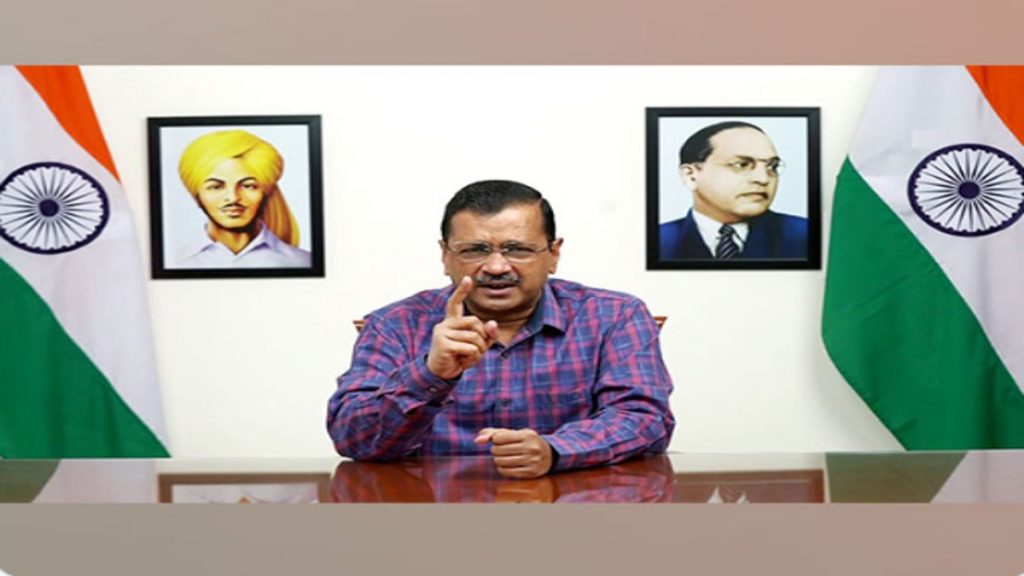New Delhi: Delhi Chief Minister Arvind Kejriwal appeared on Saturday via video conferencing before the Rouse Avenue Court following a complaint by the Directorate of Enforcement (ED) over his alleged non-compliance of its summons.
Kejriwal, while appearing virtually, informed the court that he wanted to join the court proceedings physically, but due to the confidence motion and budget sessions, he was unable to attend physically.
Delhi CM Arvind Kejriwal appeared before Rouse Avenue court via video conferencing in the matter of the Enforcement Directorate’s recent complaint against him in the excise policy case, today. The CM told the court that due to the confidence motion discussion in the assembly and… https://t.co/7VRDoMVPrz
— ANI (@ANI) February 17, 2024
Senior Advocate Ramesh Gupta appeared for Arvind Kejriwal, moved an exemption plea for Kejriwal, and assured the court that on the next date, he will appear physically.
As noted in the submissions, Additional Chief Metropolitan Magistrate Divya Malhotra allowed the exemption plea moved for today and fixed March 16, 2024, for his physical appearance before the court.
Rouse Avenue Court on February 7, 2024, took cognizance of the ED’s recent complaint filed against CM Kejriwal for not complying with the summons issued by the central probe agency in the Delhi liquor policy case linked to money laundering.
The ED recently filed a fresh complaint case under sections 190 (1)(a) and 200 of the Code of Criminal Procedure, Section 174 of the Indian Penal Code, and Section 63 (4) of the Prevention of Money Laundering Act (PMLA) for non-attendance in compliance of Section 50 of PMLA.
On February 2, Kejriwal skipped the ED’s summons for the fifth time in connection with the money laundering probe related to irregularities in the Delhi excise policy 2021-22 case. The fresh summons to the Delhi Chief Minister followed the fourth summons, which he had skipped on January 18.
While skipping the fifth summons, the party called it “unlawful.” Kejriwal has so far skipped four previous summons issued by the ED on January 18, January 3, November 2, and December 22, calling them “illegal and politically motivated.”
According to the ED, the agency wanted to record Kejriwal’s statement in the case on issues like the formulation of policy, meetings held before it was finalised, and allegations of bribery.
In its sixth charge sheet filed in the case on December 2, 2023, naming AAP leader Sanjay Singh and his aide Sarvesh Mishra, the ED has claimed that the AAP used kickbacks worth Rs 45 crore generated via the policy as part of its assembly elections campaign in Goa in 2022.
The excise policy was aimed at revitalising the city’s flagging liquor business and replacing a sales-volume-based regime with a licence fee for traders. It promised swankier stores and a better buying experience. The policy introduced discounts and offers on the purchase of liquor for the first time in Delhi.
Lieutenant Governor Vinai Kumar Saxena’s move to order a probe into alleged irregularities in the regime prompted the scrapping of the policy. The AAP has accused Saxena’s predecessor, Anil Baijal, of sabotaging the move with a few last-minute changes that resulted in lower-than-expected revenues.
Two senior AAP leaders, Manish Sisodia and Sanjay Singh–are already under judicial custody in the case.
Sisodia, who was the then Delhi Deputy Chief Minister, was arrested by the CBI on February 26 following several rounds of questioning. On October 5, the ED arrested Singh, who is a Rajya Sabha member.

